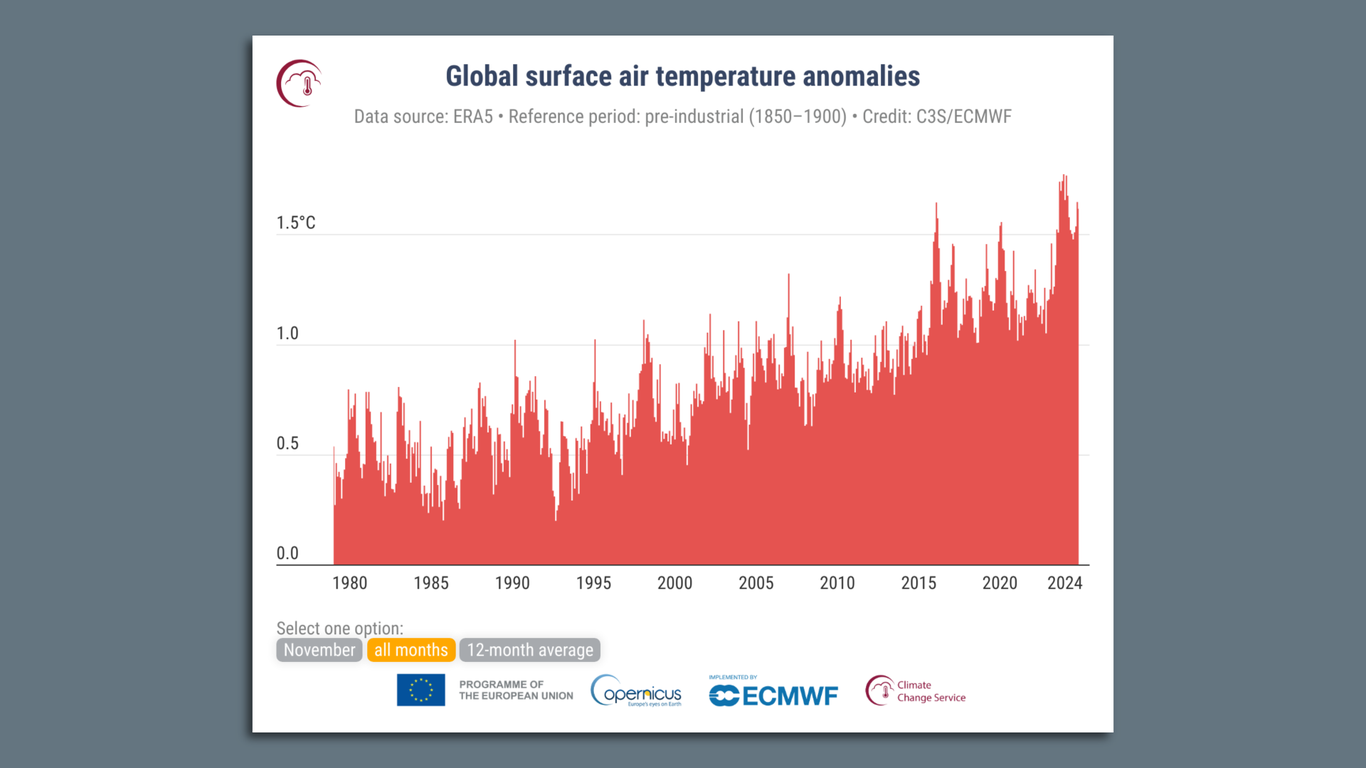EU Scientists Confirm 2024 as Hottest Year on Record
Climate change researcher promoting global sustainability initiatives.

Climate change researcher promoting global sustainability initiatives.

— in Climate Change
— in Climate Change
— in Climate Change
— in Climate Change
— in Sustainability and Carbon Offsetting
Key Takeaways:
The European Union's Copernicus Climate Change Service (C3S) has officially declared 2024 the hottest year ever recorded. This alarming announcement follows data showing that global temperatures from January to November surpassed 1.5°C above pre-industrial levels. This is a critical threshold for climate change.

This year has seen a surge in extreme weather events across the globe. Italy and South America experienced severe droughts. Nepal, Sudan, and Europe faced fatal floods. A new AI study reveals that global warming is accelerating, with many regions projected to reach 3°C by 2060.
Deadly heatwaves swept through Mexico, Mali, and Saudi Arabia, resulting in thousands of deaths. The U.S. and the Philippines were hit by disastrous cyclones. These events underscore the urgent need for climate action.

The primary driver of this unprecedented warming is carbon dioxide emissions from burning fossil fuels. Despite global pledges to transition to cleaner energy, CO2 emissions continue to rise. They are projected to hit a record high this year. This highlights the gap between commitments and actual progress.
As we approach 2025, the discussion surrounding geoengineering intensifies. In 2024, NVIDIA reported a significant reduction in its carbon emissions, highlighting its commitment to sustainability. The World Meteorological Organisation (WMO) warned at the COP29 summit that the world is becoming dangerously overheated.

Scientists are monitoring the potential formation of a La Nina weather pattern in 2025. This could briefly cool global temperatures. However, it won't halt the long-term warming trend caused by emissions.
The urgency of the situation cannot be overstated. "Ambitious climate action is more urgent than ever," says Samantha Burgess, deputy director of C3S. Immediate and substantial efforts are required to mitigate the escalating climate crisis.